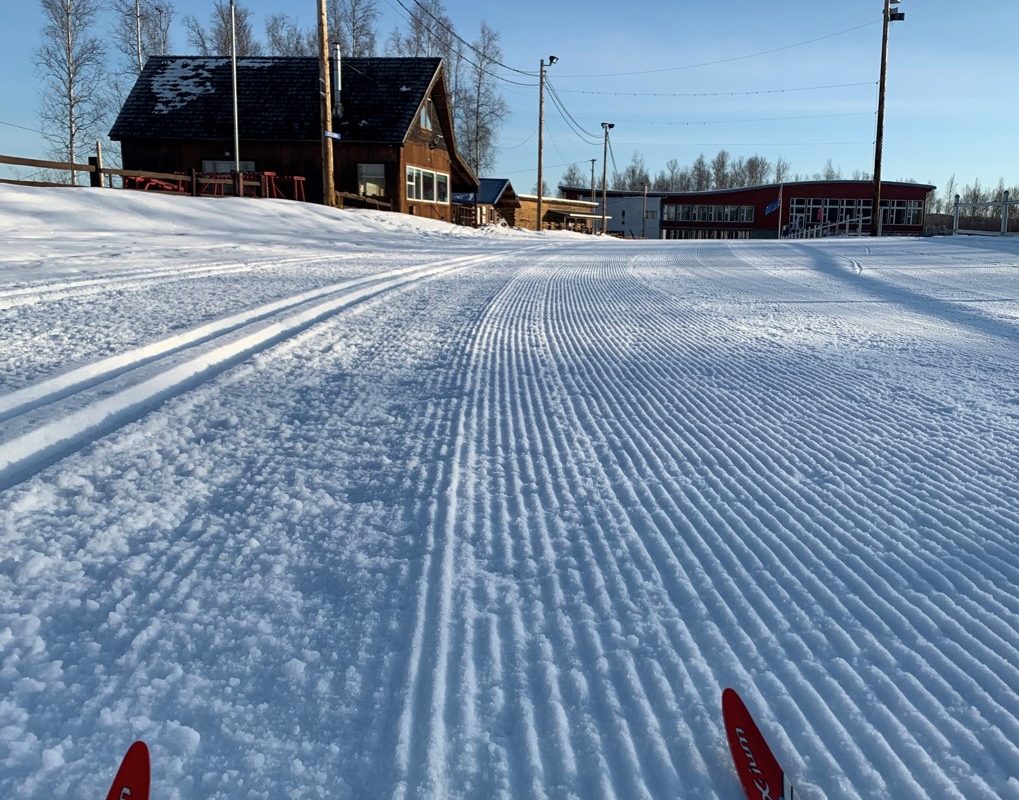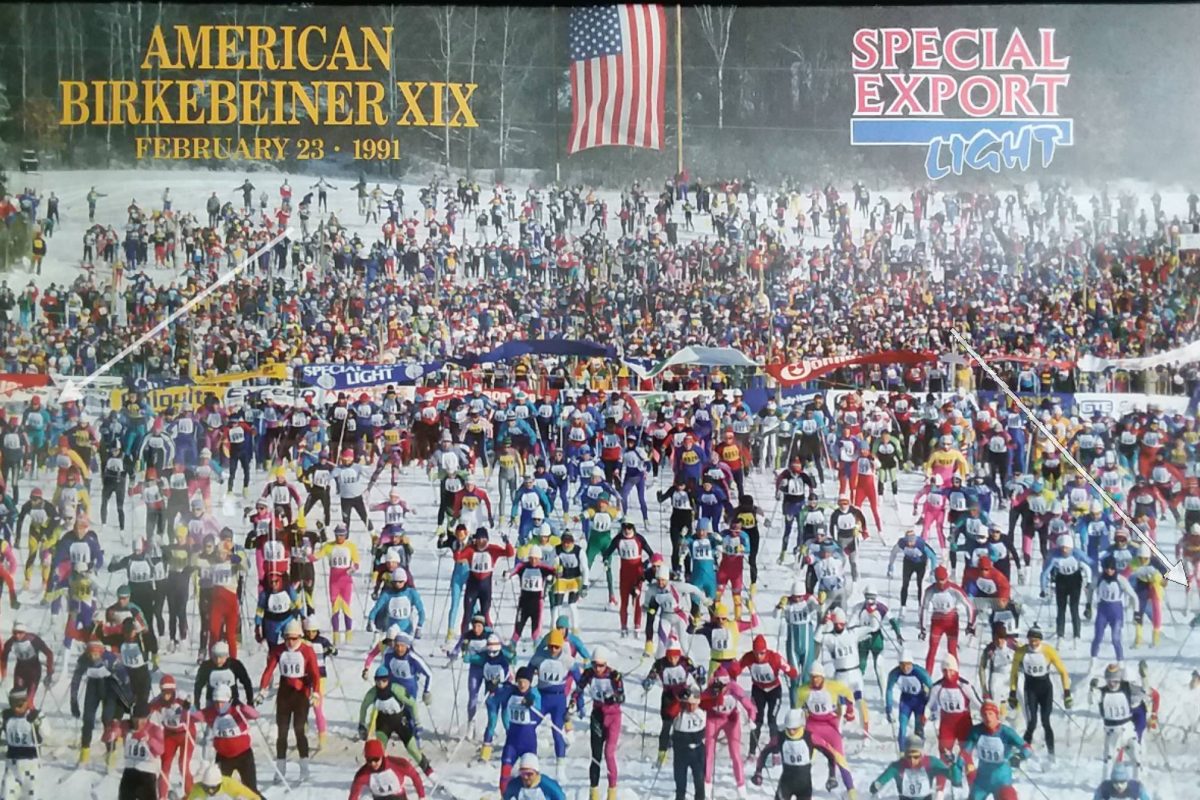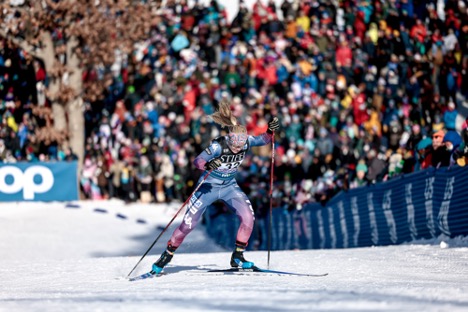Tazlina Mannix is a member of the Salomon Athlete Force and races for the APU Ski Team. More information on the Saab-Salomon Factory Team can be found at www.enjoywinter.com. This article first appeared in Ski Post – www.skipost.com
I hear my coaches say it time and time again, “ski racing is about fitness.†“We need to be the fittest people in the world,†and they’re right. Our sport is one of the most cardiovascularly and muscularly demanding endeavors possible, and there’s no doubt in my mind that fitness is the key to world class performance. We need strength, endurance, speed, coordination, and physical awareness. We race short distances and long, classic and skate, and on varying terrain and cannot reach the podium without an extremely high level of fitness.
This physical challenge does not deter me in the slightest, but is rather a long-range goal, a lifestyle that I adopted many years back. And, while I understand that this is the main component of success in ski racing, I also know that the little, less significant aspects of being a cross-country ski racer are also critically important.
I came to realize this about two months back. With fall training in high gear, I was experiencing the aches and pains of a demanding workout schedule. I was sore after bounding intervals and tight after long double poles, and then one day it clicked that I could be doing a better job of addressing recovery. I was wholeheartedly pursuing training, yet I didn’t follow a stretching routine, seldom attended a yoga class, and never got a massage. As a child I did gymnastics and dance and would do endless acrobatic routines on my parent’s lawn in the summer. Now just the thought of a backbend made me cringe. In fact, my tight hamstrings would yell at me walking up the stairs.
This got me to thinking, no matter how much I worked to develop a high level of fitness, if my body was inhibited by a limited range of motion I would not be able to reach my full potential. Physical capacity was a necessity if I wanted to stand on the podium, and conversely tight, inflexible muscles could keep me from getting there. In the scheme of things, flexibility is not a huge part of ski racing. We need to be able to work well within a certain range of motion. At the same time, the movement patterns we practice endlessly shouldn’t become more and more restrictive.
It was then that I decided to do something about my hamstrings, lower back, shoulders, neck, lats, and calves. Perhaps their tightness wouldn’t bother me this season or next, but I knew that some day it would catch up to me, and I didn’t want to take the chance. If I was to say that I was doing everything I could to succeed, this was as important a task as the workouts in my training plan.
After some research I made an appointment at a sports clinic and met with a doctor. We fully agreed that the training I was doing was further limiting my range of motion and was concerned that it was generally unhealthy and could increase my risk of injury. I was fit for sure, but my fitness was not balanced with an acceptable degree flexibility. I started a daily stretching program, simple and effective, and scheduled one massage a week until I left for racing.
Today I had my last massage before leaving for the SuperTour. I met with the doctor and he was pleased by the marked improvement. More importantly, though, I have seen a positive trend in training. My hamstrings don’t yell at me when I stride or V1 uphill and my shoulders and back complain less from double poling. My aches and pains are not gone, and I don’t expect them to be. Training is hard, and stressing the body makes us faster and stronger. Jackie Joyner-Kersee put it best when she said, “Ask any athlete: We all hurt at times. I’m asking my body to go through seven different tasks. To ask it not to ache would be too much.†What she didn’t say is that we can relieve some of the stress we put on our bodies by simply paying attention to the smaller details. Whether it’s hydrating better, getting an extra hour sleep, taking a vitamin, or stretching, it’s important to notice the little things.



